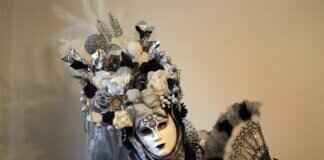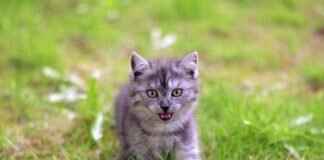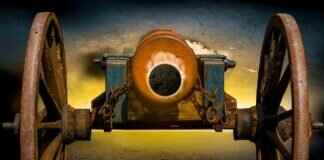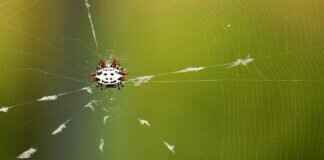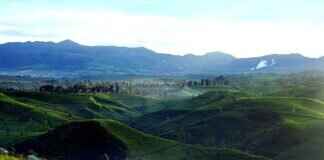This article delves into the critical duties and responsibilities of lawyers in the United States, shedding light on their pivotal roles within the legal framework and the ethical standards they are obligated to uphold.
Lawyers are essential actors in the legal system, serving as advocates for their clients while navigating a complex array of laws and regulations. Their primary responsibility is to represent clients in various legal matters, ensuring that justice is served and that their clients’ rights are protected.
At the core of a lawyer’s function is the role of an advocate. This involves not only representing clients in court but also providing comprehensive legal advice tailored to each individual’s circumstances. Lawyers must possess a deep understanding of the law and the ability to communicate effectively with clients, judges, and other legal professionals.
One of the most significant responsibilities of a lawyer is to offer effective legal representation. This encompasses a range of activities, including:
- Preparing legal cases
- Presenting arguments in court
- Negotiating settlements
Lawyers can specialize in various fields, such as:
- Criminal Law: Defending individuals accused of crimes.
- Family Law: Handling divorce, custody, and other family-related issues.
- Corporate Law: Advising businesses on legal matters.
Understanding the distinction between civil and criminal law is vital. Civil lawyers manage disputes between entities, while criminal lawyers defend those charged with crimes. Each area requires different skills and approaches.
Public defenders are appointed to assist individuals who cannot afford legal representation, while private attorneys are hired by clients who can pay for their services. Both roles carry distinct responsibilities and challenges.
Effective communication is crucial in the attorney-client relationship. Lawyers must actively listen to their clients’ concerns, provide informed legal advice, and keep them updated on case progress.
Lawyers are tasked with conducting thorough legal research to support their arguments. This includes:
- Reviewing statutes and regulations
- Analyzing case law and precedents
- Staying updated on legal developments
To conduct effective research, lawyers leverage a variety of resources, including legal databases, libraries, and specialized software.
Lawyers in the United States are bound by ethical standards set forth by the American Bar Association (ABA) and state bar associations. These standards ensure that attorneys act in their clients’ best interests while maintaining integrity.
One of the most fundamental ethical duties is maintaining client confidentiality. Lawyers must safeguard sensitive information and only disclose it with the client’s consent or when legally required.
Lawyers must also be vigilant about avoiding conflicts of interest, ensuring their personal interests do not interfere with their professional responsibilities.
When cases advance to trial, lawyers must prepare extensively. This preparation involves:
- Gathering and organizing evidence
- Interviewing witnesses
- Developing effective trial strategies
Lawyers are responsible for drafting a variety of legal documents, including pleadings, motions, and contracts. Precision and clarity are essential to achieving favorable outcomes.
Moreover, negotiation is a vital skill for lawyers. Successful negotiations can lead to beneficial settlements, saving clients time and resources while avoiding the uncertainties of a trial.
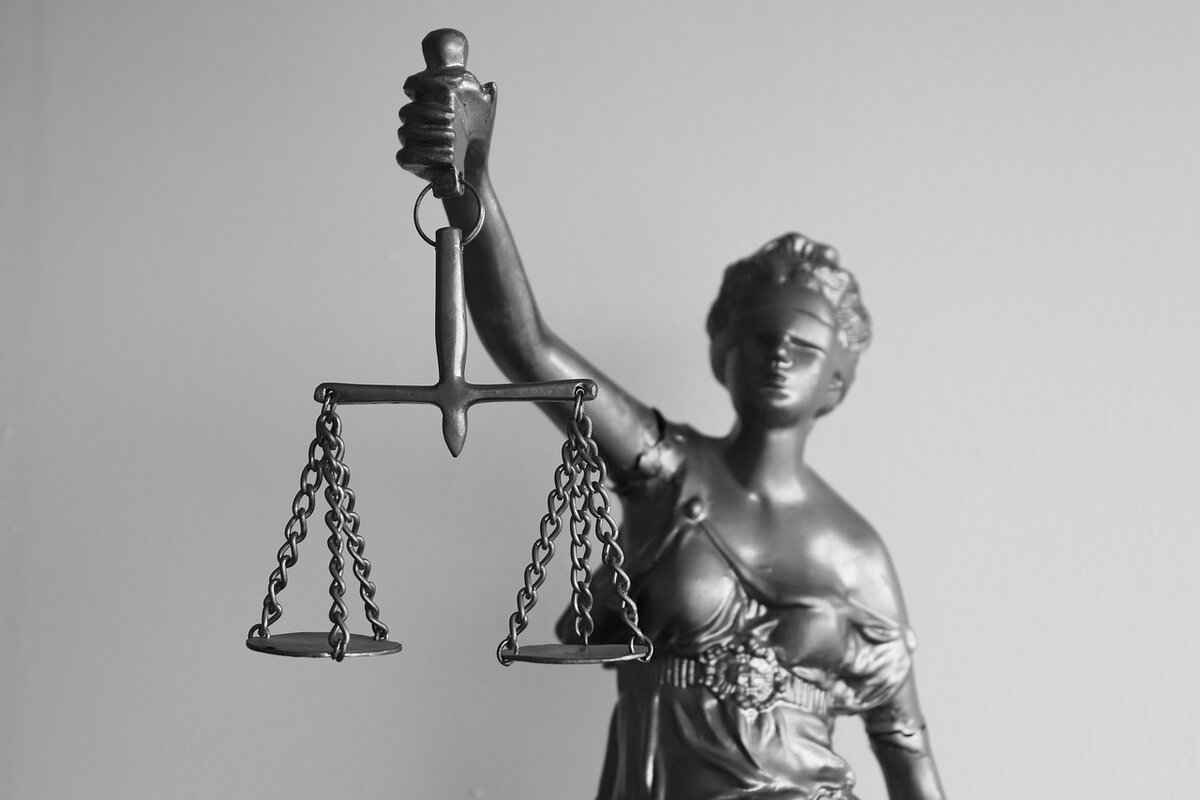
Understanding the Role of a Lawyer
Lawyers play a critical role in the legal system, acting as advocates for their clients and ensuring their rights are protected. They navigate complex legal frameworks, providing essential guidance and representation in various legal matters. The multifaceted nature of a lawyer’s role encompasses several key responsibilities that are vital for the administration of justice.
- Legal Advice and Guidance: Lawyers offer expert advice to clients on a range of legal issues. This includes interpreting laws, explaining legal rights, and outlining potential outcomes based on the specifics of a case.
- Representation in Court: One of the primary functions of a lawyer is to represent clients in court. This requires not only a deep understanding of the law but also the ability to present arguments persuasively and effectively.
- Negotiation: Many legal disputes are resolved through negotiation rather than litigation. Lawyers negotiate settlements and plea deals, aiming to achieve the best possible outcome for their clients without the need for a trial.
Furthermore, lawyers are often involved in various types of legal representation, which can be categorized into several areas:
- Criminal Law: Criminal defense attorneys represent individuals accused of crimes and work to protect their rights throughout the legal process.
- Civil Law: Civil lawyers handle cases involving disputes between individuals or organizations, such as contract disputes, personal injury claims, and family law matters.
- Corporate Law: Corporate lawyers provide counsel to businesses on legal obligations, compliance issues, and transactional matters.
In addition to these roles, lawyers must engage in extensive legal research and maintain a thorough understanding of the evolving legal landscape. This includes:
- Analyzing Case Law: Lawyers must keep abreast of court decisions and legal precedents that may impact their cases.
- Staying Informed on Legislation: Changes in laws and regulations can significantly affect legal strategies, making it essential for lawyers to stay updated.
Ethical considerations are also paramount in the practice of law. Lawyers are bound by a code of ethics that includes:
- Confidentiality: Protecting client information is a fundamental duty. Lawyers must ensure that sensitive information remains confidential unless disclosure is required by law.
- Avoiding Conflicts of Interest: Lawyers must be vigilant in identifying and managing any potential conflicts between their interests and those of their clients.
The role of a lawyer extends beyond mere representation; it encompasses a commitment to justice and the ethical practice of law. By providing informed legal advice, effective representation, and maintaining high ethical standards, lawyers play a vital role in upholding the rule of law and ensuring that justice is served.

Legal Representation and Advocacy
are fundamental aspects of a lawyer’s role, encompassing a wide array of responsibilities that ensure clients receive the best possible outcome in their legal matters. As legal professionals, lawyers are tasked with not only understanding the intricacies of the law but also effectively communicating and advocating for their clients’ interests.
One of the primary duties of a lawyer is to prepare cases. This preparation involves a meticulous process of gathering evidence, interviewing witnesses, and conducting thorough legal research. Lawyers delve into case law, statutes, and legal precedents to build a robust foundation for their arguments. This groundwork is essential, as it enables lawyers to anticipate potential challenges and craft persuasive arguments that resonate with judges and juries alike.
During court proceedings, lawyers present their arguments with clarity and confidence. They must articulate their client’s position effectively, utilizing legal principles and precedents to support their claims. This requires not only a deep understanding of the law but also the ability to think on their feet and respond to opposing counsel’s arguments in real-time. The courtroom is a dynamic environment, and a lawyer’s ability to adapt and respond can significantly influence the case’s outcome.
In addition to courtroom advocacy, lawyers engage in negotiations on behalf of their clients. Many legal matters are resolved outside of court through settlements, and skilled negotiation can lead to favorable outcomes without the need for a prolonged legal battle. Lawyers must possess strong interpersonal skills and the ability to understand the motivations of all parties involved to reach a mutually beneficial agreement.
Furthermore, legal representation extends to offering advice and guidance throughout the legal process. Lawyers educate their clients about their rights, options, and potential outcomes, ensuring they are informed and empowered to make decisions regarding their cases. This aspect of representation is particularly crucial in sensitive matters such as family law or criminal defense, where clients may be facing significant emotional stress.
Lawyers also have a duty to uphold ethical standards and ensure that their advocacy does not compromise their integrity or the justice system. They must navigate the fine line between zealous representation and ethical obligations, particularly when faced with challenging situations such as conflicts of interest or the need for confidentiality.
In summary, the role of a lawyer in legal representation and advocacy is multifaceted and requires a combination of legal knowledge, analytical skills, and interpersonal abilities. From preparing cases and presenting arguments to negotiating settlements and providing legal advice, lawyers play a crucial role in navigating the complexities of the legal system. Their commitment to advocating for their clients not only serves individual interests but also upholds the principles of justice and fairness within society.
| Key Responsibilities of Lawyers | Description |
|---|---|
| Case Preparation | Gathering evidence, conducting research, and interviewing witnesses to build a strong case. |
| Courtroom Advocacy | Presenting arguments and responding to opposing counsel during trials and hearings. |
| Negotiation | Engaging in discussions to reach settlements and favorable agreements for clients. |
| Client Consultation | Providing legal advice and keeping clients informed about their case developments. |
| Ethical Compliance | Upholding ethical standards and ensuring fair representation in all legal matters. |
Types of Legal Representation
encompass a wide range of specializations, each tailored to meet the unique needs of clients facing various legal challenges. Understanding these categories is essential for anyone seeking legal assistance or considering a career in law.
Lawyers can focus on specific fields such as criminal law, family law, corporate law, and many others. Each area demands a distinct set of skills, knowledge, and expertise to effectively advocate for clients and navigate the complexities of the legal system.
- Criminal Law: Attorneys specializing in criminal law defend individuals accused of crimes. They must possess a deep understanding of criminal statutes, procedural rules, and courtroom tactics to ensure their clients receive a fair trial. This specialization often involves plea bargaining, trial preparation, and post-conviction appeals.
- Family Law: Family law attorneys deal with issues such as divorce, child custody, and adoption. They must be skilled in negotiation and mediation, as many family law matters are resolved outside of court. Empathy and strong communication skills are crucial in this field, as family law cases often involve emotionally charged situations.
- Corporate Law: Lawyers in corporate law advise businesses on legal matters, including contracts, mergers, and compliance with regulations. This specialization requires a comprehensive understanding of business operations and the ability to navigate complex legal frameworks to protect clients’ interests.
- Personal Injury Law: Personal injury lawyers represent clients who have been harmed due to the negligence of others. They must be adept at gathering evidence, negotiating settlements, and, if necessary, litigating in court to secure compensation for their clients.
- Intellectual Property Law: This area focuses on protecting the rights of creators and inventors. Lawyers specializing in intellectual property must understand patent, copyright, and trademark laws to help clients safeguard their innovations and creations.
Each of these specializations not only requires legal knowledge but also the ability to apply that knowledge effectively in real-world scenarios. Lawyers must stay updated on changes in laws and regulations relevant to their practice area, ensuring they provide the best possible representation for their clients.
Furthermore, the choice of a lawyer often depends on the specific legal issue at hand. For instance, individuals facing criminal charges should seek a lawyer with a proven track record in criminal defense, while someone navigating a divorce should look for an attorney specializing in family law. This tailored approach ensures that clients receive the most relevant and effective legal support.
In addition to specialized knowledge, effective lawyers also possess strong communication and negotiation skills. These abilities are vital for advocating on behalf of clients, whether in court, during settlement negotiations, or in drafting legal documents. A lawyer’s effectiveness can often be measured by their ability to articulate their client’s position clearly and persuasively.
Ultimately, the variety of legal specializations available allows clients to find attorneys who are best suited to meet their specific needs. By understanding the different types of legal representation, individuals can make informed decisions when seeking legal assistance.
Civil vs. Criminal Law
In the realm of law, understanding the differences between civil law and criminal law is essential for anyone seeking legal representation or pursuing a legal career. Each area of law serves distinct purposes and follows different procedures, which can significantly impact the outcomes for individuals and organizations involved.
Civil law primarily deals with disputes between individuals or organizations. These disputes can encompass a wide range of issues, including contract disputes, property disputes, and personal injury claims. In civil cases, the party initiating the lawsuit, known as the plaintiff, seeks compensation or specific performance from the other party, known as the defendant. The burden of proof lies with the plaintiff, who must establish their case by a preponderance of the evidence, meaning it is more likely than not that their claims are valid.
On the other hand, criminal law involves the prosecution of individuals or entities accused of committing crimes. These crimes can range from minor offenses, such as petty theft, to serious felonies, like murder. In criminal cases, the government, represented by a prosecutor, brings charges against the accused, known as the defendant. The standard of proof in criminal law is much higher than in civil law; the prosecution must prove the defendant’s guilt beyond a reasonable doubt. This higher standard reflects the serious consequences that can arise from a criminal conviction, including imprisonment and fines.
Understanding these distinctions is crucial for effective legal representation. For instance, a lawyer specializing in civil law may not possess the necessary skills to navigate the complexities of a criminal trial. Conversely, a criminal defense attorney may lack the expertise required to handle a civil lawsuit. Therefore, individuals seeking legal assistance must ensure that they choose an attorney with the appropriate specialization for their specific legal issue.
In addition to the differences in the types of cases handled, the processes involved in civil and criminal law also vary significantly. Civil cases typically follow a more straightforward path, often involving negotiation and settlement discussions before reaching trial. In contrast, criminal cases may involve lengthy investigations, plea bargaining, and pre-trial motions, all of which can complicate the legal process.
Moreover, the outcomes of civil and criminal cases differ. In civil law, the primary remedy sought is usually monetary compensation. In contrast, criminal law may result in punitive measures, such as incarceration, probation, or community service, aimed at deterring future criminal behavior.
Ultimately, the distinction between civil and criminal law is fundamental to the legal system. Whether you are an individual facing a lawsuit or a defendant in a criminal trial, understanding these differences can empower you to make informed decisions about your legal representation and strategy.
As you navigate the complexities of the legal landscape, remember that consulting with a qualified attorney who specializes in the relevant area of law is vital. They can provide you with tailored advice and representation, ensuring that your rights are protected and your interests are advocated effectively.
Public Defender vs. Private Attorney
In the complex landscape of the American legal system, the distinction between public defenders and private attorneys is crucial for understanding how legal representation works for individuals facing legal challenges. This article delves into the roles, responsibilities, and differences between these two types of legal counsel.
Understanding Public Defenders
Public defenders are legal professionals appointed by the court to represent individuals who cannot afford to hire a private attorney. They play a vital role in ensuring that the right to legal counsel is upheld, as guaranteed by the Sixth Amendment of the U.S. Constitution. Public defenders typically handle a high volume of cases, which can range from minor misdemeanors to serious felonies.
- Responsibilities: Public defenders are responsible for providing competent legal representation, which includes investigating the facts of the case, gathering evidence, negotiating plea deals, and representing clients in court.
- Challenges: Due to often overwhelming caseloads, public defenders may face challenges in dedicating the necessary time and resources to each case, which can impact the quality of representation.
The Role of Private Attorneys
In contrast, private attorneys are hired by clients who can afford to pay for legal services. They offer a wide range of legal expertise and often have the flexibility to choose their cases based on their interests and specialties.
- Client Relationships: Private attorneys typically establish more personalized relationships with their clients, allowing for more tailored legal strategies and advice.
- Resources: With the ability to charge fees, private attorneys often have more resources at their disposal, including access to expert witnesses, extensive legal research tools, and the ability to dedicate more time to each client.
Key Differences Between Public Defenders and Private Attorneys
While both public defenders and private attorneys aim to provide effective legal representation, there are significant differences in their operational frameworks:
| Criteria | Public Defender | Private Attorney |
|---|---|---|
| Appointment | Appointed by the court | Hired by clients |
| Cost | Free for clients | Paid by clients |
| Caseload | High volume of cases | Variable, based on client base |
| Resources | Limited resources | Access to more resources |
| Personalization | Less personalized due to time constraints | More personalized service |
Conclusion
Both public defenders and private attorneys play essential roles in the legal system, each with unique responsibilities and challenges. Understanding the differences between them can help individuals make informed decisions about their legal representation.
Client Consultation and Communication
is a cornerstone of the attorney-client relationship, playing a crucial role in achieving favorable outcomes in legal matters. Effective communication goes beyond mere exchanges of information; it involves building a trusting relationship that empowers clients to share their concerns openly. This article delves deeper into the significance of communication in legal practice and outlines best practices for lawyers to enhance their interactions with clients.
At the heart of effective communication is the ability of lawyers to actively listen to their clients. This means not only hearing what clients say but also understanding their emotions and the context of their concerns. By practicing active listening, attorneys can better grasp the nuances of a client’s situation and tailor their legal advice accordingly. This approach fosters a sense of trust and ensures that clients feel valued and understood.
Moreover, lawyers must provide clear and concise legal advice. Legal jargon can often confuse clients, making it imperative for attorneys to translate complex legal concepts into understandable terms. This practice not only aids in client comprehension but also empowers clients to make informed decisions regarding their cases. Regularly checking in with clients to confirm their understanding can further enhance this process.
Keeping clients informed about case developments is another vital aspect of communication. Clients should receive timely updates on any changes or progress in their cases. This transparency helps alleviate client anxiety and reinforces their trust in their attorney’s capabilities. Utilizing various communication channels, such as email, phone calls, or even secure client portals, can facilitate this ongoing dialogue.
In addition, establishing a communication plan at the outset of the attorney-client relationship can set clear expectations. This plan should outline how often clients can expect updates, the preferred methods of communication, and what to do in case of urgent issues. By clearly defining these parameters, lawyers can help clients feel more secure and engaged throughout the legal process.
Furthermore, lawyers should be aware of the emotional aspects of legal issues that clients face. Legal matters can be stressful and overwhelming, so a compassionate approach can significantly enhance the client experience. By acknowledging clients’ feelings and providing reassurance, attorneys can create a supportive environment where clients feel comfortable discussing sensitive matters.
Finally, soliciting feedback from clients about their communication experience can provide valuable insights for improvement. Regularly asking clients how they feel about the communication process can help lawyers identify areas for enhancement and adjust their practices accordingly. This commitment to continuous improvement not only benefits the attorney-client relationship but also contributes to better legal outcomes.
In conclusion, effective communication in the attorney-client relationship is not merely about exchanging information but involves a holistic approach that prioritizes active listening, clarity, transparency, and empathy. By employing these strategies, lawyers can ensure that their clients feel heard, informed, and supported throughout their legal journeys.

Legal Research and Analysis
is a cornerstone of effective legal practice. Every lawyer must engage in this critical process to ensure they provide the best possible representation for their clients. This section delves into the various facets of legal research and analysis, highlighting its importance in building robust legal arguments and strategies.
At its core, legal research involves a systematic investigation of legal statutes, case law, and regulations relevant to a particular legal issue. Lawyers utilize a variety of resources to gather information, including legal databases, law libraries, and online legal research tools. These resources allow attorneys to access a wealth of information, including historical case precedents that may influence the outcome of a current case.
- Statutory Research: This involves examining laws enacted by legislatures. Understanding the language and intent of statutes is crucial for interpreting how they apply to specific cases.
- Case Law Analysis: Lawyers analyze previous court decisions to identify trends and rulings that may support their arguments. This includes understanding how similar cases were decided and the legal principles established.
- Regulatory Research: Many legal issues involve regulations set by government agencies. Lawyers must be familiar with these regulations to effectively advise clients and navigate legal challenges.
Moreover, the ability to conduct thorough legal analysis is equally important. This involves not only gathering information but also critically evaluating it to form sound legal arguments. Lawyers must assess the strengths and weaknesses of their cases based on the research conducted. This analytical process helps in crafting persuasive arguments that can withstand scrutiny in court.
In addition to traditional research methods, lawyers must also stay updated on the latest legal developments. The legal landscape is constantly changing, and new laws, amendments, and court rulings can significantly impact ongoing cases. Lawyers often subscribe to legal journals, attend seminars, and participate in continuing legal education (CLE) to remain informed.
Utilizing Technology in Legal Research
With advancements in technology, legal research has become more efficient. Many attorneys now rely on specialized legal research software that can quickly analyze vast amounts of data, helping them find relevant cases and statutes faster than ever before. These tools often come equipped with features that allow for advanced searching, citation tracking, and even predictive analytics to forecast case outcomes based on historical data.
Furthermore, collaboration among legal professionals can enhance research efforts. Lawyers often consult with colleagues or experts in specific fields to gain insights that may not be readily available through standard research methods. This collaborative approach not only broadens the scope of research but also enriches the analysis with diverse perspectives.
Ultimately, serve as the foundation upon which successful legal representation is built. By thoroughly understanding the legal landscape and employing a strategic approach to research, lawyers can effectively advocate for their clients’ interests. This dedication to rigorous analysis not only enhances the quality of legal services provided but also upholds the integrity of the legal profession.
In summary, the role of legal research and analysis in a lawyer’s practice cannot be overstated. It is an essential skill that ensures lawyers are equipped to navigate the complexities of the law, advocate effectively, and achieve favorable outcomes for their clients.
Staying Updated on Legal Changes
The legal field is in a state of constant flux, influenced by various factors such as legislative changes, judicial rulings, and evolving societal norms. For lawyers, staying updated on these changes is not just a matter of professional development; it is an essential component of their duty to provide accurate legal advice and effective representation.
As an attorney, being well-informed about the latest legal developments is critical. New laws and amendments can significantly impact ongoing cases and the advice given to clients. For instance, changes in tax law or employment regulations can alter the legal landscape in which businesses operate, affecting compliance and litigation strategies.
- Legal Journals and Publications: Many lawyers subscribe to reputable legal journals that publish articles on recent case law, statutes, and legal theories.
- Continuing Legal Education (CLE): Participating in CLE courses allows attorneys to meet state bar requirements while gaining insights into new legal trends and practices.
- Online Legal Databases: Platforms like Westlaw and LexisNexis provide comprehensive databases that help lawyers access updated legal materials quickly.
- Networking and Professional Organizations: Engaging with peers through bar associations and legal groups can provide valuable information about changes in the law and best practices.
Conducting thorough legal research is vital for any attorney. Here are some strategies to ensure you stay ahead:
- Utilize Advanced Search Techniques: Mastering search functionalities in legal databases can help find relevant cases and statutes more efficiently.
- Set Up Alerts: Many legal research platforms allow users to set up alerts for specific topics, ensuring they receive timely updates on relevant legal changes.
- Engage in Peer Discussions: Discussing recent cases or legislative changes with colleagues can provide new perspectives and insights.
Technology plays a crucial role in how lawyers stay informed. Legal tech tools can streamline the research process, making it easier to track changes in laws and regulations. For example, artificial intelligence can analyze vast amounts of legal data to identify trends and predict outcomes, helping lawyers make informed decisions.
Staying updated is not solely about knowledge; it also encompasses ethical obligations. Lawyers must ensure that their advice reflects the most current legal standards. Failure to do so can lead to malpractice claims and damage to a lawyer’s reputation. Therefore, maintaining a commitment to ongoing education is crucial for ethical legal practice.
In a rapidly changing legal environment, the responsibility of attorneys to remain informed cannot be overstated. By leveraging various resources, employing effective research strategies, and utilizing technology, lawyers can ensure they provide the best possible representation for their clients. This commitment not only enhances their professional credibility but also upholds the integrity of the legal profession as a whole.
Utilizing Legal Resources
In the complex world of law, effectively is crucial for lawyers to provide the best representation for their clients. The legal profession demands a rigorous approach to research, analysis, and preparation, which is why lawyers often turn to a variety of resources to support their work.
One of the primary resources lawyers rely on is legal databases. These databases, such as Westlaw and LexisNexis, offer comprehensive access to case law, statutes, regulations, and legal journals. By leveraging these tools, attorneys can quickly find relevant precedents and legal principles that apply to their cases. This not only saves time but also enhances the quality of legal arguments presented in court.
Law libraries are another invaluable resource for legal research. Many law firms maintain their own libraries, while others utilize public or university law libraries. These libraries house a wealth of legal texts, including treatises, encyclopedias, and historical legal documents. Lawyers can delve into these resources to gain a deeper understanding of specific legal issues or historical context that may impact their cases.
In addition to traditional resources, legal software has become increasingly important in modern legal practice. Tools like case management software help lawyers organize case files, track deadlines, and collaborate with clients and colleagues. Document automation software can streamline the drafting process for contracts and pleadings, ensuring accuracy and efficiency. By harnessing technology, lawyers can focus more on strategy and less on administrative tasks.
- Research Techniques: Effective legal research requires a combination of skills, including the ability to formulate precise search queries and critically evaluate sources. Lawyers must be adept at distinguishing between primary and secondary sources, understanding the hierarchy of laws, and integrating findings into their legal arguments.
- Networking with Peers: Engaging with other legal professionals can also be a valuable resource. Participating in bar association events, attending legal seminars, and joining online forums allows lawyers to exchange insights and stay updated on the latest legal trends and developments.
Furthermore, continuing legal education (CLE) is essential for lawyers to remain competent in their fields. Many states require attorneys to complete a certain number of CLE hours annually. These programs often cover emerging legal issues, changes in statutes, and best practices, ensuring that lawyers are well-equipped to handle their clients’ needs.
Maintaining a strong network of expert consultants can also enhance a lawyer’s ability to prepare cases. Whether it’s collaborating with forensic experts, financial analysts, or medical professionals, having access to specialized knowledge can significantly strengthen a case. This interdisciplinary approach allows lawyers to present more compelling arguments and anticipate challenges from opposing counsel.
In conclusion, the utilization of various legal resources is fundamental to a lawyer’s success. By effectively leveraging databases, libraries, software, and professional networks, lawyers can conduct thorough research and prepare cases that stand up in court. The ability to adapt to evolving resources and technologies will continue to play a significant role in the legal profession, shaping how attorneys advocate for their clients in an increasingly complex legal landscape.

Ethical Obligations of Lawyers
are fundamental to maintaining the integrity of the legal profession. In the United States, these obligations are primarily governed by the American Bar Association (ABA) and various state bar associations. Lawyers are expected to adhere to these ethical standards to ensure that they act in their clients’ best interests while upholding the rule of law.
The ethical framework within which lawyers operate is designed to foster trust between clients and their legal representatives. This trust is essential for effective legal representation and advocacy. Lawyers must be aware of their ethical duties, which include:
- Confidentiality: One of the most critical ethical obligations is maintaining client confidentiality. Lawyers must protect sensitive information shared by clients, ensuring that it is not disclosed without proper authorization or legal necessity. This principle is vital for fostering open communication between clients and attorneys.
- Avoiding Conflicts of Interest: Lawyers must be vigilant in identifying and avoiding conflicts of interest. This means they cannot represent clients whose interests are directly adverse to those of another client unless all parties involved give informed consent. This duty helps maintain the integrity of the attorney-client relationship.
- Competence: Lawyers have a duty to provide competent representation. This involves staying informed about relevant legal developments and ensuring they possess the necessary skills and knowledge to handle their clients’ cases effectively.
- Communication: Effective communication is an ethical obligation that requires lawyers to keep their clients informed about the status of their cases and to respond promptly to client inquiries. This transparency builds trust and ensures that clients can make informed decisions.
Moreover, the ABA’s Model Rules of Professional Conduct outline additional responsibilities, such as the duty to represent clients zealously within the bounds of the law. This means that while lawyers are advocates for their clients, they must also uphold the law and avoid engaging in fraudulent or dishonest conduct.
Another essential aspect of legal ethics is the duty to provide pro bono services. Many state bar associations encourage or require attorneys to contribute a certain number of hours to providing free legal services to those in need. This obligation reinforces the legal profession’s commitment to access to justice for all individuals, regardless of their financial situation.
In addition to these obligations, lawyers must also navigate the ethical challenges that arise in their practice areas. For example, criminal defense attorneys may face unique dilemmas when representing clients accused of serious crimes. They must balance their duty to defend their clients vigorously with their obligation to the court and the justice system.
Staying updated on changes in ethical rules and regulations is crucial for lawyers. The legal landscape is continually evolving, and lawyers must adapt to new ethical standards and guidelines to maintain their licenses and uphold their professional integrity. Many state bar associations provide resources, training, and continuing legal education (CLE) opportunities to help attorneys stay informed.
In summary, the ethical obligations of lawyers are vital for maintaining the trust and integrity of the legal profession. By adhering to these standards, lawyers not only serve their clients’ best interests but also contribute to the overall fairness and effectiveness of the legal system. Understanding and fulfilling these responsibilities is essential for any attorney committed to practicing law ethically and competently.
Confidentiality and Privilege
In the legal profession, maintaining client confidentiality is not just a best practice; it is a fundamental ethical duty that underpins the attorney-client relationship. This principle is enshrined in various legal codes and is a cornerstone of trust between clients and their lawyers.
Lawyers are entrusted with sensitive information that, if disclosed, could harm their clients’ interests. This includes personal details, financial records, and strategic information related to legal matters. As such, attorneys must take all necessary steps to ensure that this information remains confidential. The ethical obligation to protect client information extends beyond the duration of the attorney-client relationship; it continues even after the relationship has ended.
Confidentiality is not absolute, however. There are specific circumstances where disclosure may be permitted or required by law. For instance, if a lawyer believes that a client is about to commit a crime or cause harm to others, they may be obligated to report this information to the authorities. Additionally, in some jurisdictions, lawyers may be required to disclose certain information to comply with regulatory requirements or court orders.
To effectively uphold client confidentiality, lawyers should implement robust security measures to protect sensitive information. This includes using secure communication channels, encrypting electronic files, and ensuring that physical documents are stored in locked locations. Furthermore, it is essential for lawyers to educate their staff about the importance of confidentiality and the specific protocols that must be followed to maintain it.
- Secure Communication: Utilize encrypted email services and secure client portals for sharing sensitive information.
- Document Security: Store physical files in locked cabinets and limit access to authorized personnel only.
- Staff Training: Regularly train employees on confidentiality policies and the importance of safeguarding client information.
Moreover, lawyers must be vigilant in identifying potential conflicts of interest that could compromise confidentiality. For example, if a lawyer has previously represented a client in a matter, they cannot represent another client with opposing interests without the former client’s consent. This principle is vital in maintaining the integrity of the attorney-client relationship.
In addition to legal obligations, adhering to confidentiality fosters a strong attorney-client relationship. Clients are more likely to share critical information when they feel assured that their privacy will be respected. This open communication can lead to more effective legal strategies and better outcomes for clients.
In conclusion, the ethical duty of maintaining client confidentiality is a cornerstone of legal practice that must be taken seriously by all attorneys. By implementing stringent security measures, educating staff, and being mindful of potential conflicts of interest, lawyers can uphold this vital principle and foster trust with their clients. Ultimately, the commitment to confidentiality not only protects clients’ interests but also enhances the integrity of the legal profession as a whole.
Avoiding Conflicts of Interest
is a critical aspect of a lawyer’s ethical responsibility. Conflicts of interest arise when a lawyer’s personal interests, relationships, or obligations may compromise their ability to represent a client impartially. Such situations can jeopardize the trust that is fundamental to the attorney-client relationship and can lead to serious legal consequences for both the lawyer and the client.
To effectively avoid conflicts of interest, lawyers must first identify potential conflicts. This involves a thorough understanding of their own professional and personal relationships, as well as the interests of their clients. For instance, if a lawyer has a financial interest in a business that is involved in a case, they must disclose this information to their clients and potentially withdraw from representation to maintain ethical standards.
Lawyers are also required to conduct conflict checks before taking on new clients or cases. This process involves reviewing existing client relationships and any previous representations to ensure that accepting a new case will not create a conflict. Many law firms utilize specialized software to assist in this process, ensuring that no potential conflicts are overlooked.
Furthermore, lawyers must be vigilant about ongoing conflicts that may arise during the course of representation. Situations can change, and what may not have been a conflict at the outset can develop into one. Regular communication with clients about any changes in circumstances is essential for maintaining transparency and trust.
In addition to identifying and managing conflicts, lawyers must also educate their clients about the implications of conflicts of interest. Clients should be made aware of how these conflicts can affect their case and the importance of open communication. This education fosters a collaborative relationship where clients feel empowered to discuss any concerns they may have.
When conflicts are unavoidable, lawyers must take appropriate steps to address them. This may include obtaining informed consent from clients to continue representation despite the conflict, or in some cases, withdrawing from the representation altogether. The American Bar Association provides guidelines on how to navigate these situations, emphasizing the importance of client autonomy and informed decision-making.
In conclusion, avoiding conflicts of interest is not merely a legal obligation; it is a cornerstone of the ethical practice of law. By proactively identifying potential conflicts, conducting thorough conflict checks, maintaining open communication with clients, and adhering to ethical guidelines, lawyers can uphold their duty to their clients and the legal profession. This commitment not only protects the integrity of the legal system but also reinforces the trust that clients place in their legal representatives.

Litigation and Trial Responsibilities
Lawsuits can be complex and demanding, requiring lawyers to engage in extensive preparation before a trial. This preparation is crucial to ensure that they can effectively advocate for their clients and navigate the intricacies of the legal system.
When a case proceeds to trial, the stakes are often high, and the outcome can significantly impact the lives of those involved. Therefore, lawyers must undertake a comprehensive approach to trial preparation. This includes a variety of tasks that are essential for building a strong case.
One of the first steps in trial preparation is gathering evidence. Lawyers must collect all relevant documents, photographs, videos, and other materials that can support their case. This process often involves:
- Document Discovery: Reviewing and obtaining documents from the opposing party.
- Subpoenas: Issuing subpoenas to compel witnesses to provide testimony or produce evidence.
- Expert Testimony: Engaging expert witnesses who can provide specialized knowledge relevant to the case.
Another critical aspect of trial preparation is interviewing witnesses. Lawyers must identify key witnesses who can provide testimonies that support their client’s position. This involves:
- Identifying Key Witnesses: Determining who has relevant information about the case.
- Conducting Interviews: Gathering detailed accounts from witnesses to understand their perspectives.
- Preparing Witnesses: Coaching witnesses on what to expect during their testimony to ensure clarity and confidence.
Effective trial strategies are essential for presenting a compelling case. Lawyers must develop a plan that outlines how they will:
- Present Evidence: Organizing evidence in a logical manner that supports their arguments.
- Craft Arguments: Formulating persuasive arguments that resonate with the judge and jury.
- Anticipate Counterarguments: Preparing for potential objections or counterarguments from the opposing side.
Drafting legal documents is another vital responsibility during trial preparation. Lawyers must ensure that all documents, such as motions, pleadings, and discovery requests, are accurately prepared and filed in accordance with court rules. Attention to detail is crucial, as any errors can adversely affect the case.
Finally, lawyers often engage in moot court sessions or practice trials to refine their courtroom skills. This practice allows them to:
- Hone Public Speaking Skills: Improving their ability to present arguments clearly and persuasively.
- Test Strategies: Evaluating the effectiveness of their trial strategies in a simulated environment.
- Receive Feedback: Gaining insights from peers or mentors to enhance their performance.
In conclusion, the responsibilities of lawyers during litigation and trial preparation are multifaceted and critical to achieving favorable outcomes for their clients. By gathering evidence, interviewing witnesses, developing strategies, preparing legal documents, and practicing courtroom skills, lawyers position themselves to advocate effectively in the courtroom.
Preparing Legal Documents
is a fundamental duty of lawyers, encompassing a wide range of written materials necessary for legal proceedings and transactions. From pleadings to contracts, the precision and clarity of these documents are essential for achieving favorable legal outcomes.
Lawyers must understand the specific requirements and formats for various legal documents. This knowledge is critical, as any errors or ambiguities can lead to significant consequences, including delays in legal processes or unfavorable judgments. Below are some of the key types of legal documents that lawyers frequently prepare:
- Pleadings: These are formal written statements filed with the court that outline the parties’ positions in a legal dispute. Pleadings include complaints, answers, and counterclaims, each requiring meticulous attention to detail to ensure compliance with court rules.
- Contracts: Lawyers draft contracts to formalize agreements between parties. These documents must clearly articulate the terms and conditions to avoid potential disputes. A well-drafted contract protects the interests of the parties involved and provides a clear framework for enforcement.
- Motion Papers: When lawyers seek specific rulings or orders from the court, they file motion papers. These documents must convincingly present arguments and evidence to persuade the judge to grant the requested relief.
- Legal Briefs: In appellate cases, lawyers prepare briefs that outline the legal arguments and precedents supporting their client’s position. These documents require extensive legal research and analysis to be effective.
In addition to drafting these documents, lawyers must also ensure that they are filed correctly and on time. Failure to adhere to filing deadlines can result in lost opportunities for clients. Therefore, effective time management and organizational skills are paramount.
Moreover, lawyers often collaborate with clients to gather necessary information and documentation. This collaboration ensures that the legal documents accurately reflect the clients’ intentions and circumstances. Effective communication during this process is crucial, as it helps build trust and ensures that clients feel heard and understood.
Another important aspect of preparing legal documents is review and revision. Lawyers must meticulously review their drafts for clarity, accuracy, and compliance with applicable laws and regulations. This process often involves multiple revisions and consultations with clients to refine the documents further.
In today’s digital age, many lawyers utilize advanced legal software and document management systems to streamline the drafting process. These tools can enhance efficiency, reduce errors, and ensure that lawyers stay up-to-date with the latest legal standards and practices.
Ultimately, the role of a lawyer in preparing legal documents extends beyond mere writing. It involves a deep understanding of the law, keen analytical skills, and a commitment to advocating for clients’ best interests. By producing high-quality legal documents, lawyers play a crucial role in navigating the complexities of the legal system and achieving just outcomes for their clients.
Negotiation Skills
are an essential component of a lawyer’s toolkit, playing a critical role in the legal profession. The ability to negotiate effectively can lead to favorable settlements and outcomes, often without the need for a lengthy and costly trial. This not only saves clients time and resources but also fosters a more amicable resolution to disputes.
In the realm of law, negotiations can occur in various contexts, including settlement discussions, contract negotiations, and plea bargains. Each of these scenarios requires a unique approach and skill set, tailored to the specific circumstances and the parties involved.
- Settlement Negotiations: In civil cases, lawyers often engage in settlement negotiations to resolve disputes before they escalate to trial. This process involves assessing the strengths and weaknesses of the case, understanding the interests of both parties, and crafting a proposal that meets the needs of all involved.
- Contract Negotiations: Lawyers frequently negotiate contracts on behalf of their clients, whether for business transactions, employment agreements, or real estate deals. Effective negotiation in this context ensures that the terms are favorable and protect the client’s interests.
- Plea Bargaining: In criminal law, plea bargaining is a negotiation between the defendant and the prosecutor. A skilled attorney can negotiate a plea deal that may result in reduced charges or a lighter sentence, significantly impacting the defendant’s future.
To become proficient in negotiation, lawyers must develop several key skills:
- Active Listening: Understanding the other party’s perspective is crucial. Lawyers must listen carefully to identify underlying interests and concerns, which can inform their negotiation strategy.
- Effective Communication: Clear and persuasive communication is vital. Lawyers must articulate their client’s position and needs while maintaining a respectful dialogue with opposing parties.
- Problem-Solving: Negotiation often involves finding creative solutions that satisfy both parties. Lawyers should be prepared to think outside the box and propose alternatives that may not be immediately apparent.
- Emotional Intelligence: Recognizing and managing emotions—both their own and those of others—can be a powerful tool in negotiations. Lawyers who can navigate emotional dynamics are often more successful in reaching agreements.
Furthermore, preparation is key to successful negotiation. Lawyers should conduct thorough research on the relevant legal issues, the other party’s position, and potential outcomes. This preparation allows them to enter negotiations with confidence and a clear strategy.
In addition to traditional negotiation techniques, many lawyers are now incorporating collaborative law practices. This approach emphasizes cooperation over competition, allowing parties to work together towards a mutually beneficial resolution. By fostering a collaborative environment, lawyers can often achieve outcomes that are more satisfactory for all involved.
Ultimately, the importance of negotiation skills in the legal profession cannot be overstated. A lawyer’s ability to negotiate effectively can lead to significant advantages for their clients, making it an indispensable part of their responsibilities. As the legal landscape continues to evolve, those who master the art of negotiation will be well-equipped to advocate for their clients and achieve favorable results.
Frequently Asked Questions
- What are the main responsibilities of a lawyer?
Lawyers primarily advocate for their clients, provide legal advice, and represent them in court. They prepare cases, conduct legal research, and ensure that justice is served while upholding ethical standards.
- How do lawyers communicate with their clients?
Effective communication is key! Lawyers listen to their clients’ concerns, explain legal processes, and keep them updated on case developments, ensuring that clients are informed every step of the way.
- What is the difference between a public defender and a private attorney?
A public defender is appointed to represent individuals who cannot afford legal counsel, while a private attorney is hired by clients who can pay for their services. Both roles carry distinct responsibilities and obligations.
- Why is legal research important for lawyers?
Legal research is crucial as it helps lawyers build strong arguments by reviewing statutes, case law, and legal precedents. Staying updated on legal changes ensures accurate advice and representation for clients.
- What ethical obligations do lawyers have?
Lawyers must maintain client confidentiality, avoid conflicts of interest, and act in their clients’ best interests, adhering to the ethical rules set by the American Bar Association and state bar associations.










